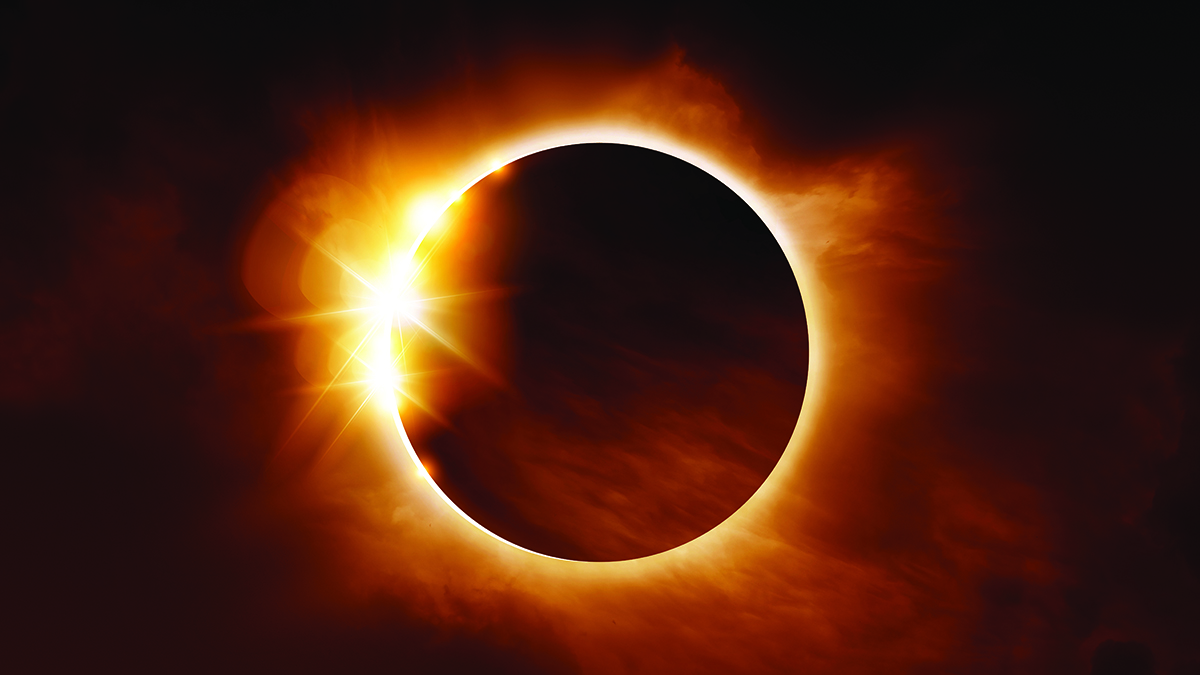feature
Sounds in Sunlight
Blind Students Hear Solar Eclipse
The Science Teacher—Fall 2023 (Volume 90, Issue 7)
By Sóley Hyman, Wilson González-Espada, Allyson Bieryla, and Wanda Díaz-Merced
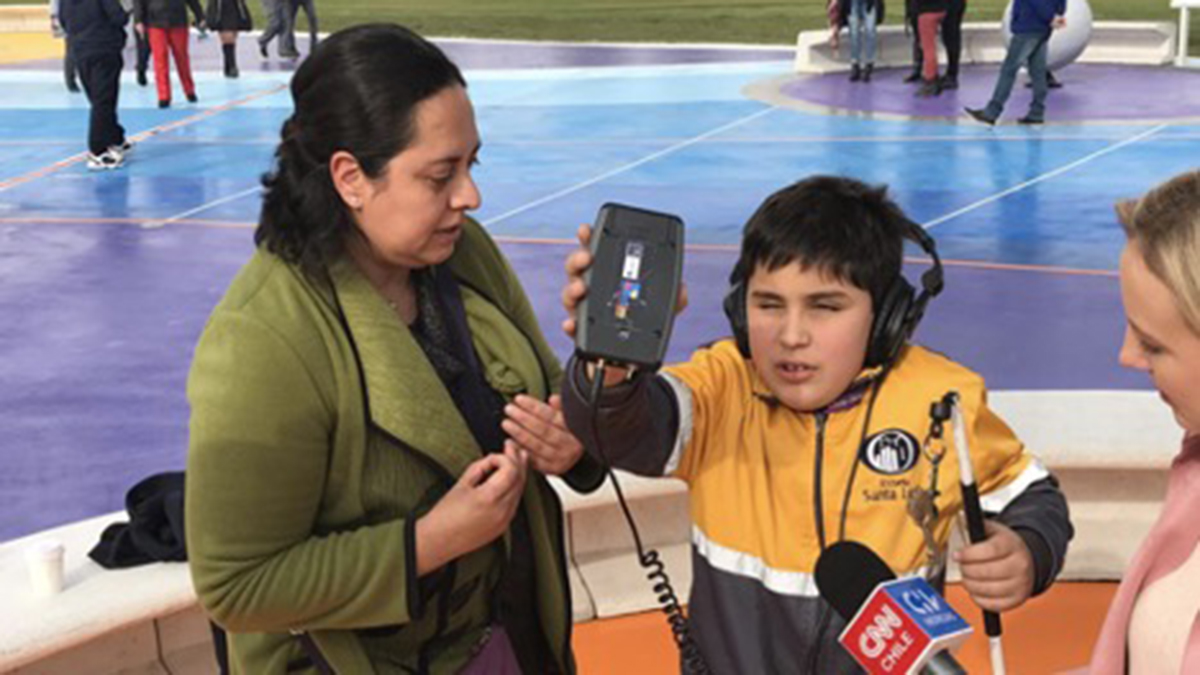
Solar eclipses are excellent platforms for engaging students with astronomy and for teaching concepts like the Sun-Earth-Moon relationship through rare natural events. Traditional STEM instruction, however, highly depends on diagrammatic and visual modes of learning, which is disadvantageous for students with disabilities, especially those who are blind or have visual impairments (BVI) (Beck-Winchatz and Riccobono 2008; Childers et al. 2015; Falk 2018).
Solar eclipses are excellent platforms for engaging students with astronomy and for teaching concepts like the Sun-Earth-Moon relationship through rare natural events. Traditional STEM instruction, however, highly depends on diagrammatic and visual modes of learning, which is disadvantageous for students with disabilities, especially those who are blind or have visual impairments (BVI) (Beck-Winchatz and Riccobono 2008; Childers et al. 2015; Falk 2018).
Solar eclipses are excellent platforms for engaging students with astronomy and for teaching concepts like the Sun-Earth-Moon relationship through rare natural events. Traditional STEM instruction, however, highly depends on diagrammatic and visual modes of learning, which is disadvantageous for students with disabilities, especially those who are blind or have visual impairments (BVI) (Beck-Winchatz and Riccobono 2008; Childers et al. 2015; Falk 2018).
feature
Making the Most of the Upcoming Solar Eclipse Double-Header
October 14, 2023, and April 8, 2024
The Science Teacher—Fall 2023 (Volume 90, Issue 7)
By Andrew Fraknoi and Dennis Schatz
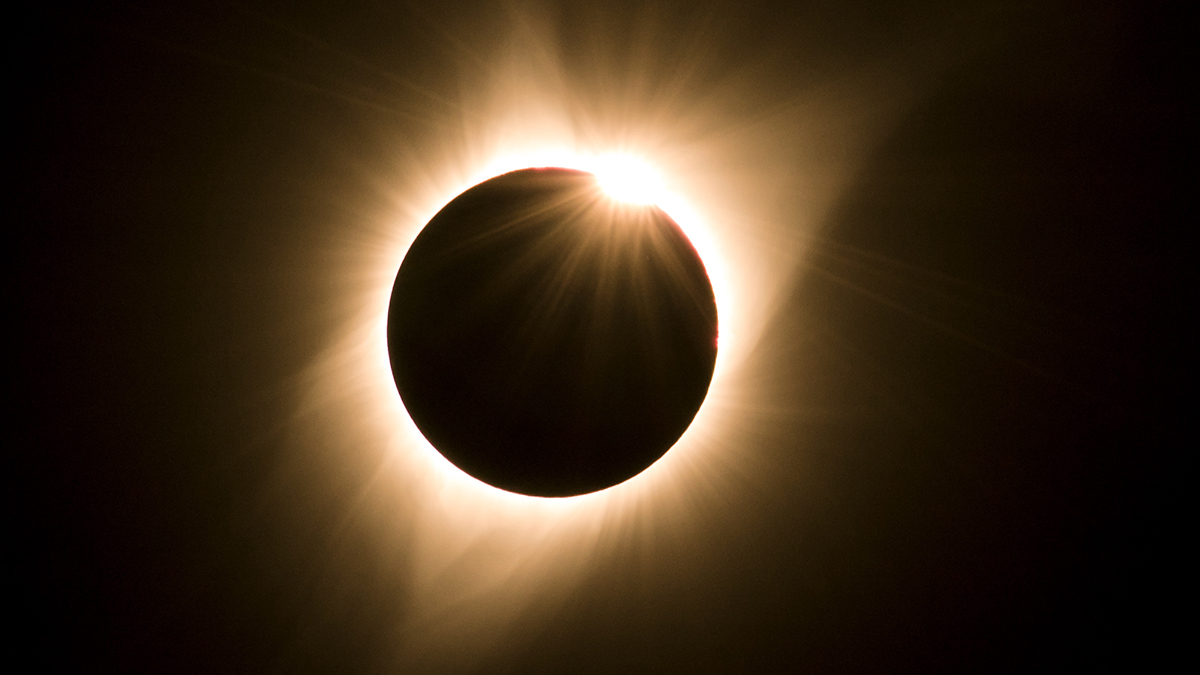
Eclipses of the Sun, where the Moon gets in front of the Sun and blocks its light, are among the most spectacular of natural events. The total eclipse visible in the United States in 2017 fascinated and involved millions of people all across the country. The good news is that against all odds, two dramatic solar eclipses—an eclipse double-header—will occur during the coming school year.
Eclipses of the Sun, where the Moon gets in front of the Sun and blocks its light, are among the most spectacular of natural events. The total eclipse visible in the United States in 2017 fascinated and involved millions of people all across the country. The good news is that against all odds, two dramatic solar eclipses—an eclipse double-header—will occur during the coming school year.
Eclipses of the Sun, where the Moon gets in front of the Sun and blocks its light, are among the most spectacular of natural events. The total eclipse visible in the United States in 2017 fascinated and involved millions of people all across the country. The good news is that against all odds, two dramatic solar eclipses—an eclipse double-header—will occur during the coming school year.
feature
The 2023 and 2024 Solar Eclipse Double-Header
The Perfect Opportunity to Highlight Three-Dimensional Science Learning
The Science Teacher—Fall 2023 (Volume 90, Issue 7)
By Dennis Schatz and Andrew Fraknoi
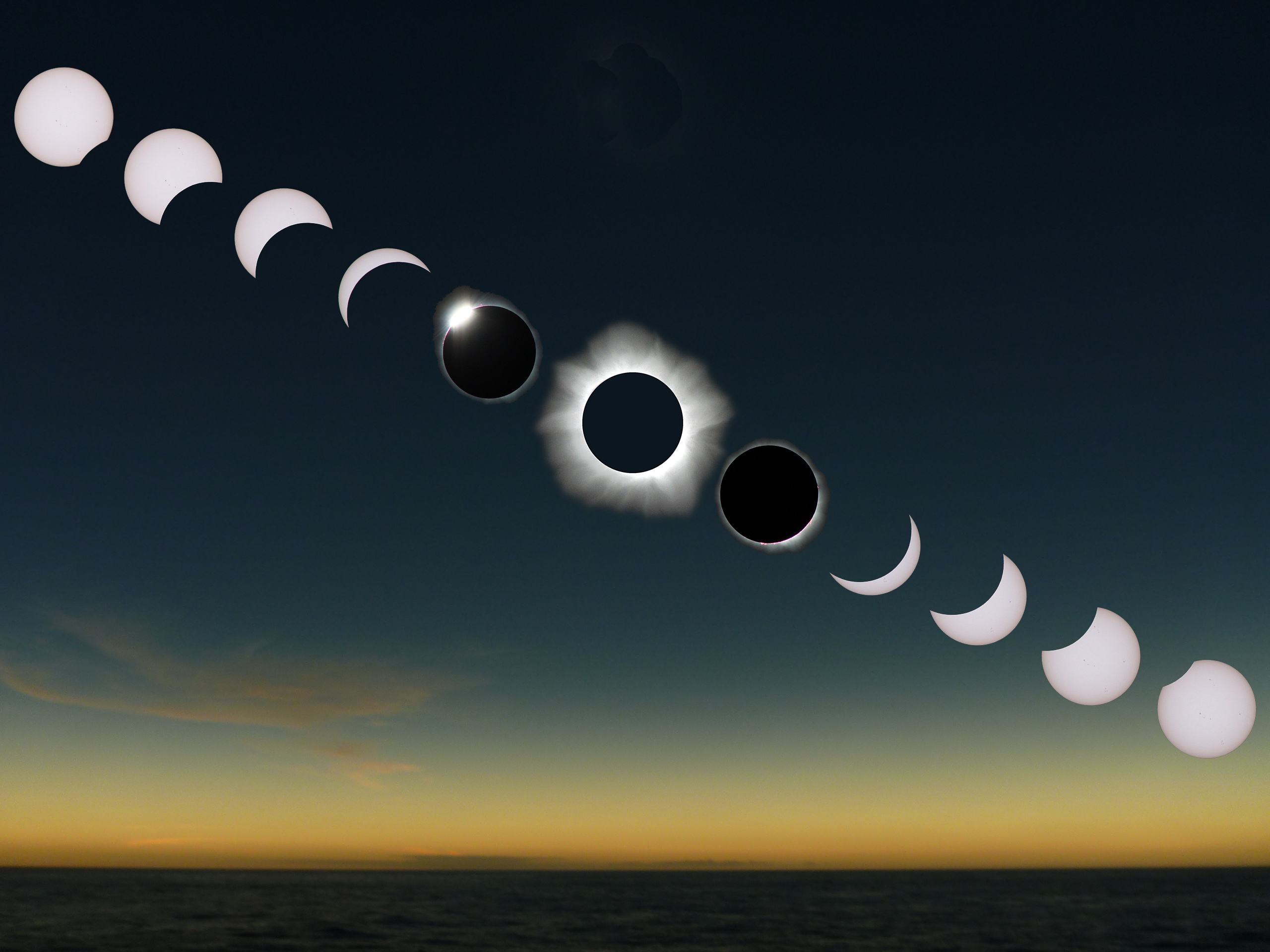
North America will experience a solar eclipse “double-header” this fall. While 500 million people will see two partial eclipses (when the Moon covers part of the Sun), those fortunate enough to be in a 125-mile-wide path on October 14, 2023, will see an annular (ring of fire) eclipse of the Sun. Even more impressive, those in the roughly 100-mile-wide path of totality on April 8, 2024, will see a spectacular total eclipse.
North America will experience a solar eclipse “double-header” this fall. While 500 million people will see two partial eclipses (when the Moon covers part of the Sun), those fortunate enough to be in a 125-mile-wide path on October 14, 2023, will see an annular (ring of fire) eclipse of the Sun. Even more impressive, those in the roughly 100-mile-wide path of totality on April 8, 2024, will see a spectacular total eclipse.
North America will experience a solar eclipse “double-header” this fall. While 500 million people will see two partial eclipses (when the Moon covers part of the Sun), those fortunate enough to be in a 125-mile-wide path on October 14, 2023, will see an annular (ring of fire) eclipse of the Sun. Even more impressive, those in the roughly 100-mile-wide path of totality on April 8, 2024, will see a spectacular total eclipse.
Idea Bank
Translanguaging as an Essential Practice in Socially Just Science Classrooms
How to make all language styles appropriate for science learning
The Science Teacher—Fall 2023 (Volume 90, Issue 7)
By Sarah Braden and Taylor Dexter
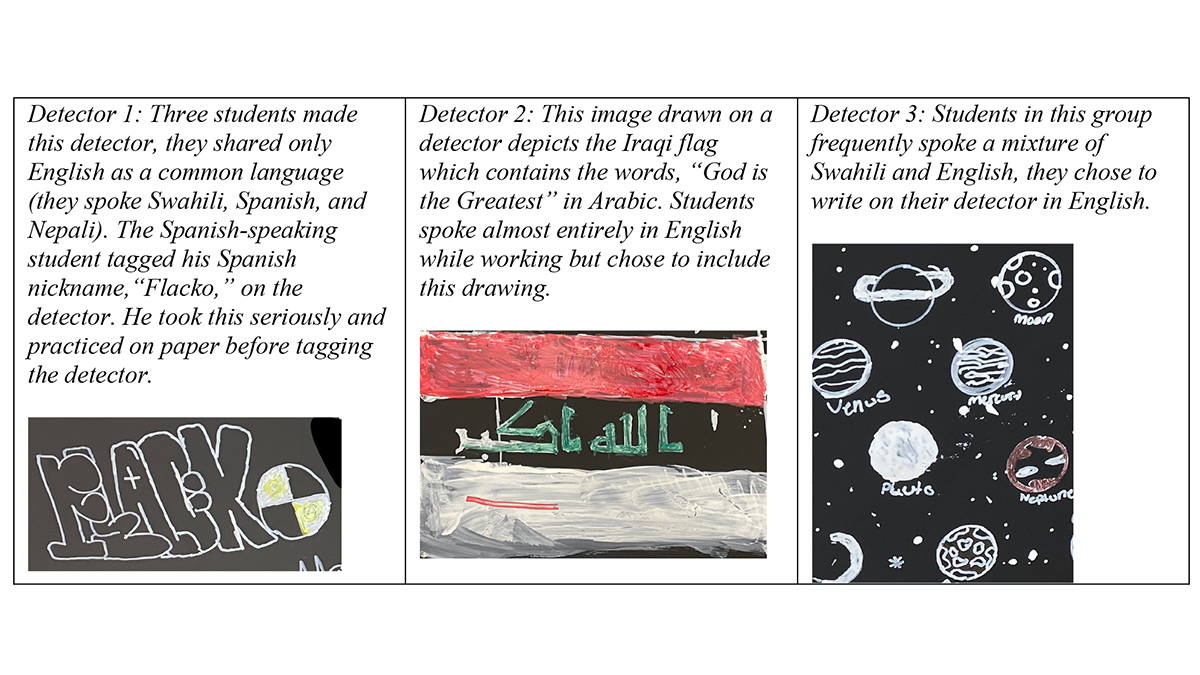
In this interaction, Manuel and Rico (all names are pseudonyms) expertly mix Spanish and English to communicate as they collect data in a ninth grade physics lab. Your reaction to this mixture of English and Spanish, what users sometimes call “Spanglish” will depend on your beliefs about language and multilingualism. Researchers refer to these beliefs as language ideologies (Gal and Irvine 2019). Due to the absence of clearly articulated language policies in the United States, in districts, and in schools, teachers set the policies for their classrooms and hold students accountable for following or not following these policies based on their language ideologies (Zhang and Pelttari 2014).
In this interaction, Manuel and Rico (all names are pseudonyms) expertly mix Spanish and English to communicate as they collect data in a ninth grade physics lab. Your reaction to this mixture of English and Spanish, what users sometimes call “Spanglish” will depend on your beliefs about language and multilingualism. Researchers refer to these beliefs as language ideologies (Gal and Irvine 2019).
In this interaction, Manuel and Rico (all names are pseudonyms) expertly mix Spanish and English to communicate as they collect data in a ninth grade physics lab. Your reaction to this mixture of English and Spanish, what users sometimes call “Spanglish” will depend on your beliefs about language and multilingualism. Researchers refer to these beliefs as language ideologies (Gal and Irvine 2019).
focus on physics
Teaching Students to Read Equations
The Science Teacher—Fall 2023 (Volume 90, Issue 7)
By Paul G. Hewitt
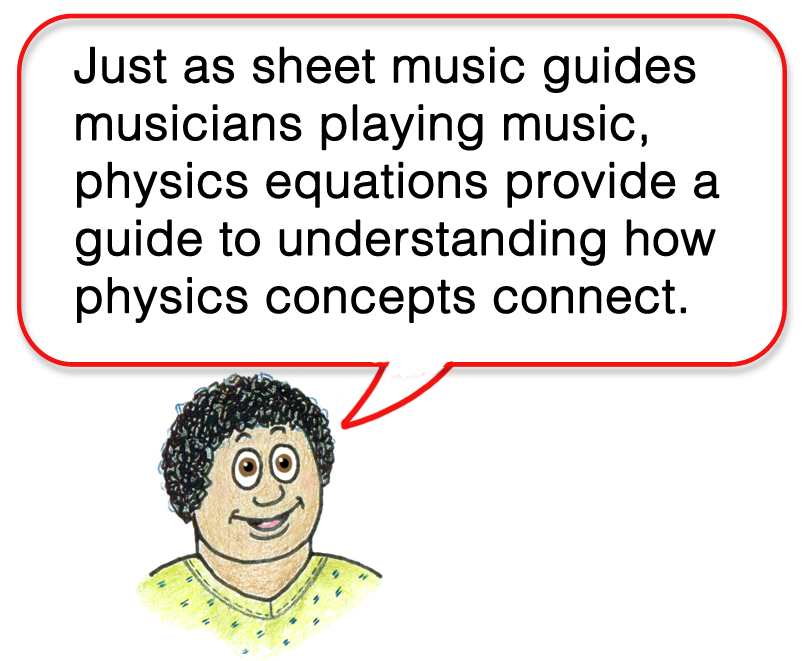
The laws of nature are expressed in equation form in all physics courses. How these laws are taught can vary widely. In this article, I expand on previous Focus on Physics articles, particularly the March 2022 article “The Importance of Reading Equations,” and relate some of my classroom experiences with physics equations.
The laws of nature are expressed in equation form in all physics courses. How these laws are taught can vary widely. In this article, I expand on previous Focus on Physics articles, particularly the March 2022 article “The Importance of Reading Equations,” and relate some of my classroom experiences with physics equations.
The laws of nature are expressed in equation form in all physics courses. How these laws are taught can vary widely. In this article, I expand on previous Focus on Physics articles, particularly the March 2022 article “The Importance of Reading Equations,” and relate some of my classroom experiences with physics equations.
Idea Bank
Pathways to Science Literacy
A new double helical model as a guide to state science standards
The Science Teacher—Fall 2023 (Volume 90, Issue 7)
By John Suchocki
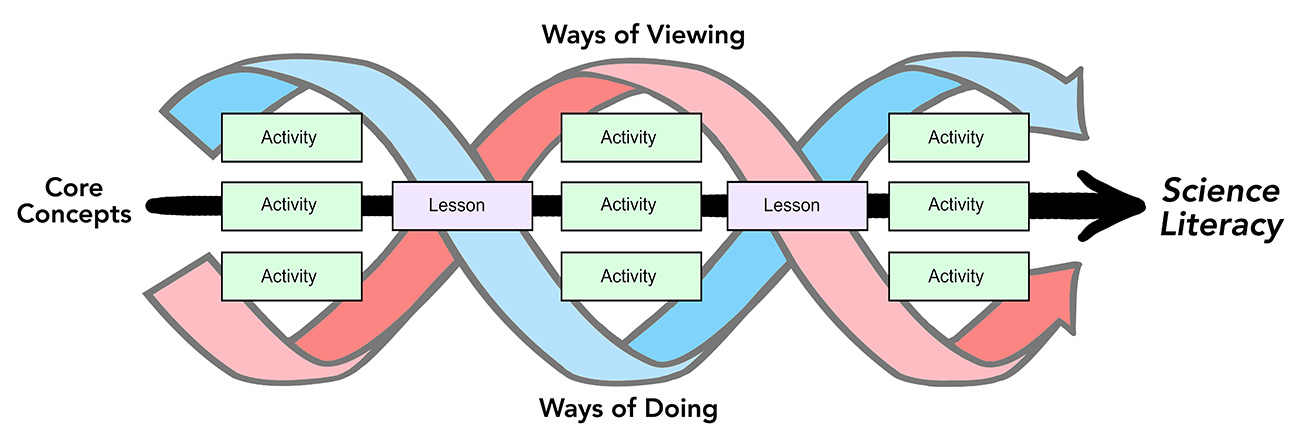
Science concepts connect us to the wonders of the natural universe. Why is the sky blue? [Air molecules behave much like tiny little tuning forks.] Is there gravity in space? [Yes, it extends to infinity.] What do fish “breathe” underwater? [It’s not the water.] A scientifically literate individual can answer questions such as these or at least be curious enough and sufficiently equipped to find accurate explanations.
Science concepts connect us to the wonders of the natural universe. Why is the sky blue? [Air molecules behave much like tiny little tuning forks.] Is there gravity in space? [Yes, it extends to infinity.] What do fish “breathe” underwater? [It’s not the water.] A scientifically literate individual can answer questions such as these or at least be curious enough and sufficiently equipped to find accurate explanations.
Science concepts connect us to the wonders of the natural universe. Why is the sky blue? [Air molecules behave much like tiny little tuning forks.] Is there gravity in space? [Yes, it extends to infinity.] What do fish “breathe” underwater? [It’s not the water.] A scientifically literate individual can answer questions such as these or at least be curious enough and sufficiently equipped to find accurate explanations.
Idea Bank
Promoting Learning for All Through Explore-Before-Explain
The Science Teacher—Fall 2023 (Volume 90, Issue 7)
By Patrick Brown, Jay McTighe, and Rodger Bybee

The Next Generation Science Standards (NGSS) highlight the importance of creating more equitable learning environments and engaging all students in science (NGSS Lead States 2013). In professional learning, we target the hands-on, minds-on experiences teachers already use with students as the starting point of rethinking instructional design. Next, we focus on the evidence-based claims students can make from hands-on, minds-on experiences. With this key focus, teachers can develop pre-assessments that elicit students’ ideas and experiences and lead to evidence-based experiences. Similarly, students’ evidence-based experiences help teachers focus on essential need-to-know information presented through discussions, readings, and further elaborations (see Figure 1). Teachers appreciate the process because it helps them prioritize the most salient aspects of curriculum design to ensure we promote more equitable, robust, and memorable experiences for all students.
The Next Generation Science Standards (NGSS) highlight the importance of creating more equitable learning environments and engaging all students in science (NGSS Lead States 2013). In professional learning, we target the hands-on, minds-on experiences teachers already use with students as the starting point of rethinking instructional design. Next, we focus on the evidence-based claims students can make from hands-on, minds-on experiences. With this key focus, teachers can develop pre-assessments that elicit students’ ideas and experiences and lead to evidence-based experiences.
The Next Generation Science Standards (NGSS) highlight the importance of creating more equitable learning environments and engaging all students in science (NGSS Lead States 2013). In professional learning, we target the hands-on, minds-on experiences teachers already use with students as the starting point of rethinking instructional design. Next, we focus on the evidence-based claims students can make from hands-on, minds-on experiences. With this key focus, teachers can develop pre-assessments that elicit students’ ideas and experiences and lead to evidence-based experiences.
commentary
Scientific Literacy: Lives could depend on it!
The Science Teacher—Fall 2023 (Volume 90, Issue 7)
By Charlotte Moser
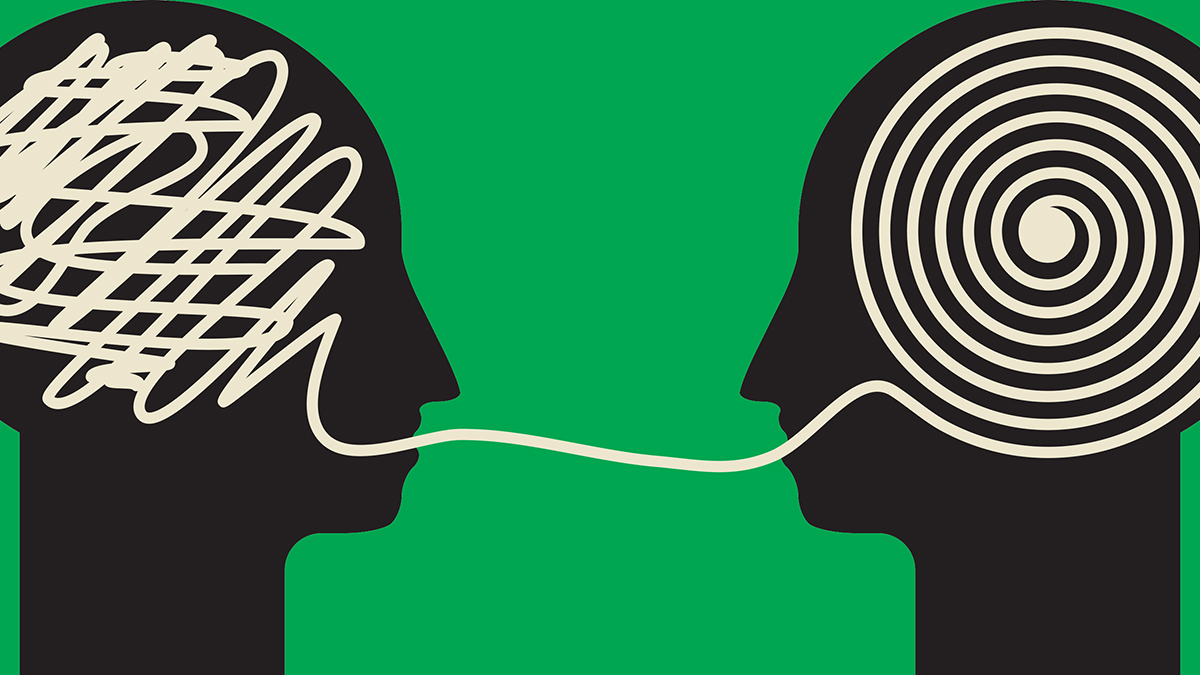
Carl Sagan famously said “We live in a society exquisitely dependent on science and technology, in which hardly anyone knows anything about science and technology” (Sagan, 1990, p. 264). As demonstrated during the COVID-19 pandemic, all adults need to make decisions that require scientific knowledge and understanding. In some cases, lives will hang in the balance. High school science classes offer one of the last formal opportunities for students to become scientifically literate. However, knowing how science is done isn’t sufficient. Students must also develop the skills to apply that understanding in their adult lives. For this reason, educators can benefit from consideration of how adults learn and make decisions.
Carl Sagan famously said “We live in a society exquisitely dependent on science and technology, in which hardly anyone knows anything about science and technology” (Sagan, 1990, p. 264). As demonstrated during the COVID-19 pandemic, all adults need to make decisions that require scientific knowledge and understanding. In some cases, lives will hang in the balance. High school science classes offer one of the last formal opportunities for students to become scientifically literate. However, knowing how science is done isn’t sufficient.
Carl Sagan famously said “We live in a society exquisitely dependent on science and technology, in which hardly anyone knows anything about science and technology” (Sagan, 1990, p. 264). As demonstrated during the COVID-19 pandemic, all adults need to make decisions that require scientific knowledge and understanding. In some cases, lives will hang in the balance. High school science classes offer one of the last formal opportunities for students to become scientifically literate. However, knowing how science is done isn’t sufficient.
commentary
Preparing for the Great American Eclipse of 2024
The Science Teacher—Fall 2023 (Volume 90, Issue 7)
By Kurtz Miller

The Great American Eclipse of 2017 path of totality passed across the United States on Monday August 21, 2017, from Madras, Oregon to Columbia, South Carolina (NASA 2017). The Great American Eclipse of 2024 will likewise pass across the United States on Monday April 8, 2024, from Eagle Pass, Texas to Presque Isle, Maine (Zeiler 2022). It is important to consider “lessons learned” from the first eclipse to prepare for the upcoming one.
The Great American Eclipse of 2017 path of totality passed across the United States on Monday August 21, 2017, from Madras, Oregon to Columbia, South Carolina (NASA 2017). The Great American Eclipse of 2024 will likewise pass across the United States on Monday April 8, 2024, from Eagle Pass, Texas to Presque Isle, Maine (Zeiler 2022). It is important to consider “lessons learned” from the first eclipse to prepare for the upcoming one.
The Great American Eclipse of 2017 path of totality passed across the United States on Monday August 21, 2017, from Madras, Oregon to Columbia, South Carolina (NASA 2017). The Great American Eclipse of 2024 will likewise pass across the United States on Monday April 8, 2024, from Eagle Pass, Texas to Presque Isle, Maine (Zeiler 2022). It is important to consider “lessons learned” from the first eclipse to prepare for the upcoming one.
Editor's Corner



